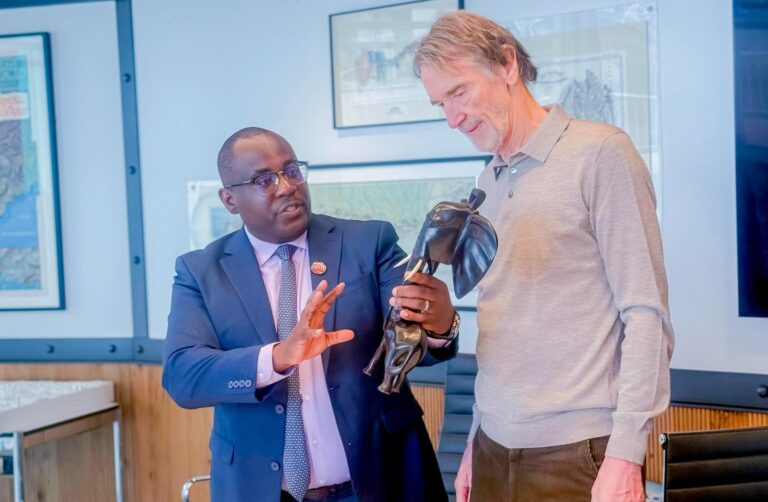Dar es Salaam. In a significant meeting in Monaco, Sir Jim Ratcliffe, co-owner of Manchester United, and OGC Nice of France, has promised to partner with the Tanzanian government to bolster conservation efforts and enhance the country’s tourism appeal.
This collaboration comes as global attention on wildlife preservation intensifies, and Tanzania positions itself as a leader in ecological tourism.
During discussions this Friday with Dr Hassan Abbasi, the Permanent Secretary of Tanzania’s Ministry of Natural Resources and Tourism, Mr Ratcliffe expressed his admiration for the government’s achievements under President Samia Suluhu Hassan.
He highlighted Tanzania’s unique biodiversity, stating, “Tanzania is the only country in the world currently preserving a significant number of large animals, which have largely disappeared from other regions.”
A Strategic alliance for conservation
Mr Ratcliffe’s commitment to collaborate aligns with the growing trend of influential figures in various sectors championing environmental causes.
As the founder of Six Rivers Africa, Ratcliffe has focused on sustainable development and conservation in regions like Tanzania, particularly in the Southern Highlands.
His promise to support these initiatives could provide essential resources and visibility for Tanzania’s wildlife protection efforts.
Dr Abbasi seized the opportunity to urge Mr Ratcliffe to use his influence in the sports world to promote Tanzanian tourism.
In a swift rejoinder, Mr Ratcliffe committed to leveraging his connections to raise global awareness about Tanzania as a premier eco-tourism destination.
This strategic move aims to attract international tourists, ultimately benefiting local economies and communities dependent on tourism for their livelihoods.
Implications for Tanzania’s future
The partnership has broader implications for Tanzania’s approach to conservation and tourism.
By merging environmental protection with economic development, the collaboration could create a sustainable model that not only preserves wildlife but also supports local communities.
This approach is crucial as many nations face the dual challenges of protecting biodiversity while fostering economic growth.
Moreover, Mr Ratcliffe’s involvement could catalyze additional investment in conservation projects, drawing attention from other global stakeholders.
As wildlife preservation increasingly becomes a focal point for international dialogue, Tanzania stands to benefit from enhanced visibility and support.







